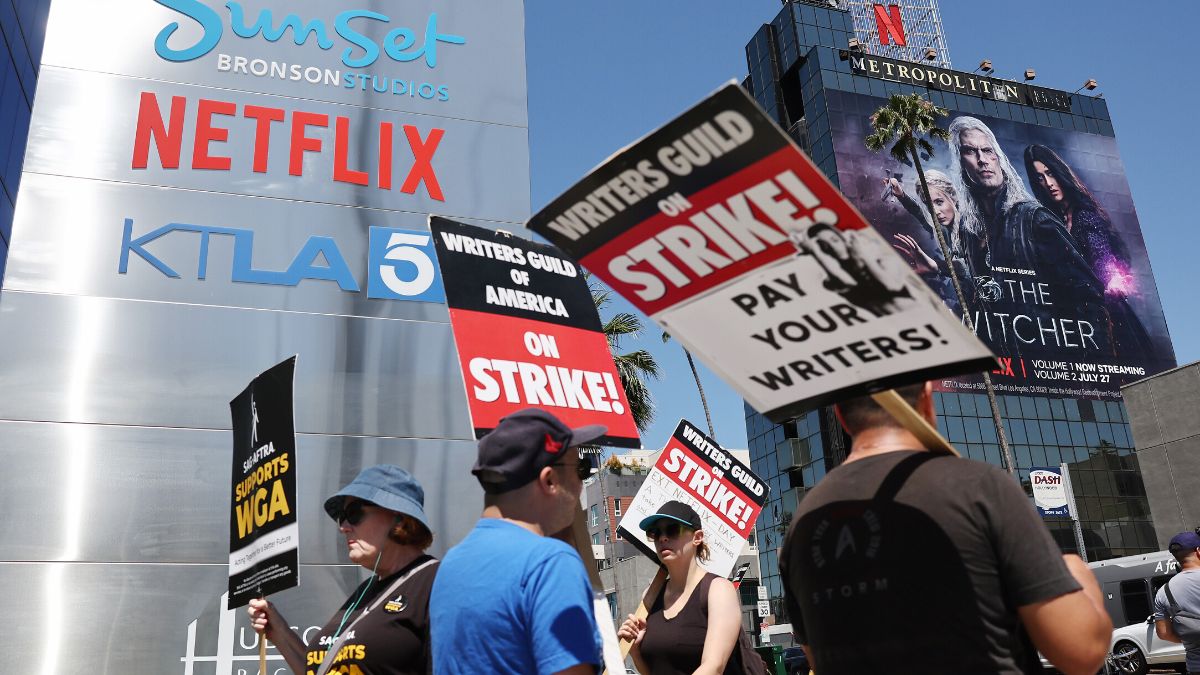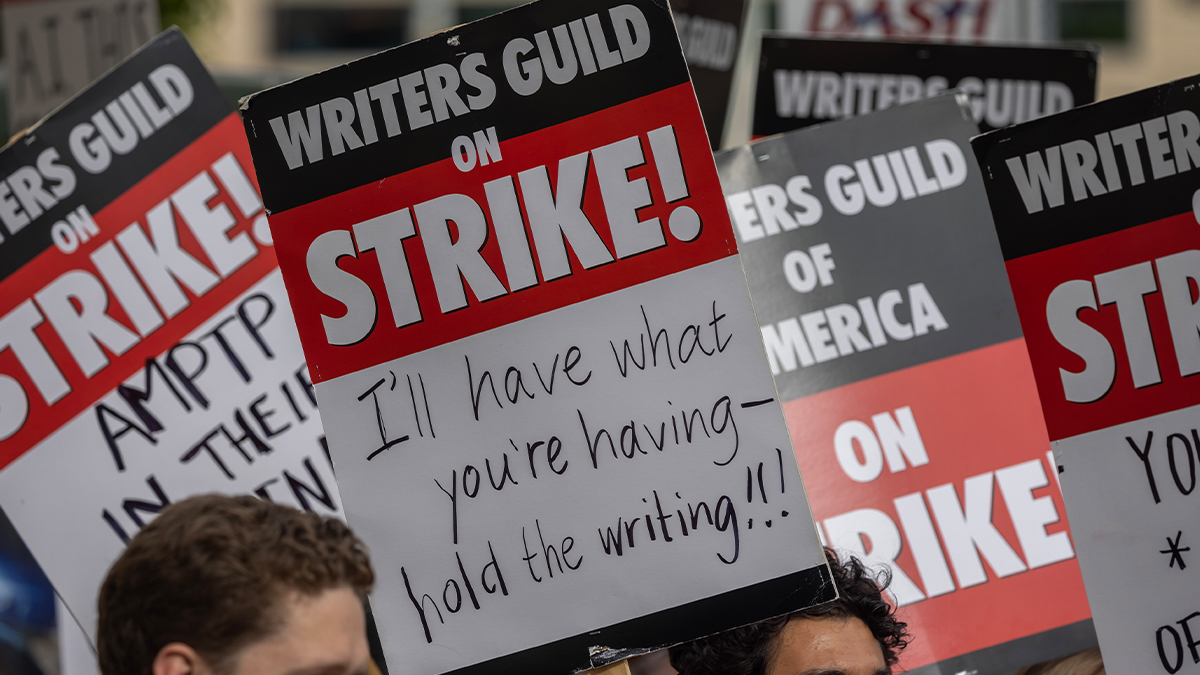The writers’ strike is well into its third month and is showing no signs of abating anytime soon. This isn’t the first writers’ strike to ever take place though, so let’s look at the last time they put down their pens and pencils, and walked away from their jobs to stand on the picket line.
The current writers’ strike is the result of writers feeling unfairly compensated for their work, especially in the age of streaming, as well as concern for how studios may replace them with AI in the future. The Minimum Basic Agreement (MBA) between the Writers Guild of America and the Alliance of Motion Picture & Television Producers was up for renewal (as it is every three years), which was the perfect opportunity for the WGA to put forward their concerns and ask for a better, fairer contract that guaranteed residual pay from streaming, a fairer minimum wage, as well as controls on the use of AI. Negotiations, however, did not go well, and the WGA called a strike on May 2nd, the day after their then-current contract ended.
This has become the largest labor stoppage in Hollywood since the last time the WGA went on strike in 2007. Back then, writers went on strike to demand better pay reflecting the profits the larger studios were making from their work. The strike started on Nov. 5, 2007, and ran for exactly 100 days, only ending on Feb. 12, 2008, when a deal was reached for an improved MBA. This strike saw all 12,000 film and television screenwriters belonging to the WGA walk out during this time, picketing and demanding a better deal.
Though streaming may not have been anywhere near as big as it is nowadays, the issues regarding “new media,” content that was made for the internet, were one of the biggest points of contention between the WGA and AMPTP. They saw this strike as a way to make a stand, as they predicted that their residuals would disappear as content moved online. The result was that those working as writers for streaming services would also be covered by the Guild, meaning that big streaming services had to hire Guild writers.

One of the other sticking points in this strike was DVD residuals, with the WGA asking for a doubling of what writers were earning from DVD residuals, which at the time was 0.3 percent from each DVD sale, to 0.6 percent. This point though, was removed by the WGA before they even got to strike and the 0.3 percent remained, much to the chagrin of other writers.
The strike that lasted 100 days took its toll on the industry and the local economy. With writers not working, others in the industry also lost jobs, and that meant they stopped spending as much money. As the Los Angeles Times puts it, “a ripple effect set in.” According to Reuters, the 2007 strike cost California $2.1 billion and ended up pushing the state over the teetering precipice it was already on, and into a recession.
The economic fallout from the current strike is expected to be a lot bigger, especially now that the actors are also going on strike whilst AMPTP has brought in a federal mediator to sit down with SAG-AFTRA to see if they can find a way to reach a deal before this gets any messier. Many economists predict that the fallout from this current strike will result in losses of over $3 billion, though it’s less likely to push the state into another recession.











Published: Jul 13, 2023 08:37 pm